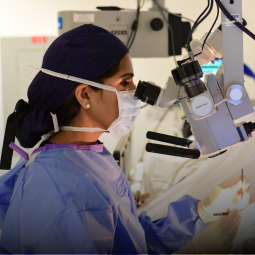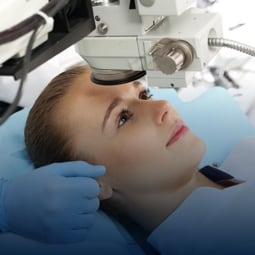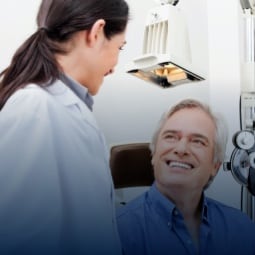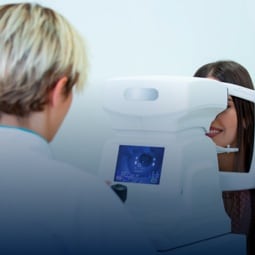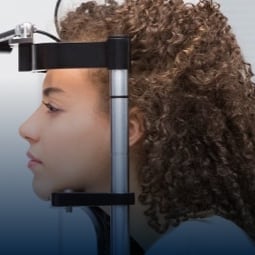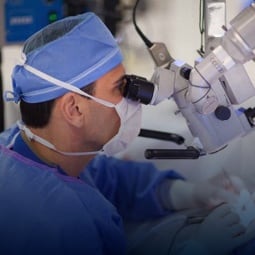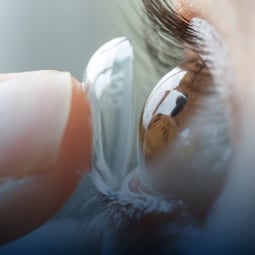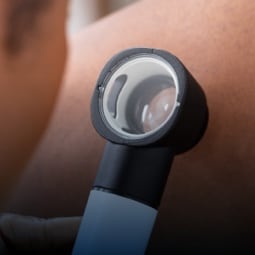
Diabetes Requires an Emphasis on Eye Health
For someone with diabetes, taking care of your eye health is crucial for your long-term vision. At Center For Sight, our experienced physicians can help you manage your diabetes while protecting your vision and eye health.
Diabetes can place you at a higher risk of several eye conditions that can threaten your vision. With our experience and access to effective technology, we can identify issues early and help manage your condition.
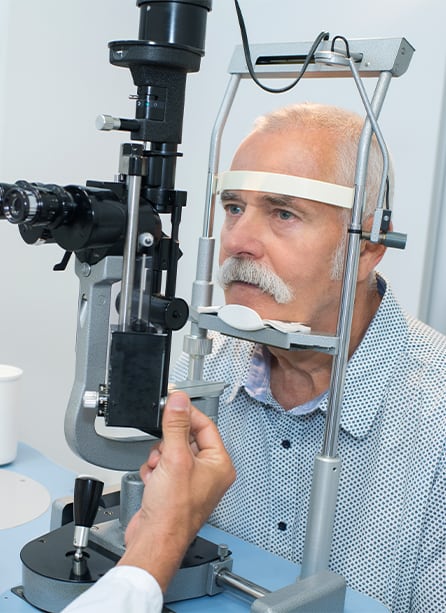

How Diabetes Affects Your Vision
Someone with diabetes cannot produce insulin or effectively use insulin, which typically regulates the body’s blood sugar levels. Blood sugar can build up and cause problems throughout the body, including your eyes.
High amounts of blood sugar can damage your retina, causing vision problems and potentially leading to severe vision loss.

Diabetes-Related Eye Conditions
Diabetes can significantly affect your vision. When your blood sugar is too high for long periods, damage can occur to the delicate blood vessels in the retina, an essential component of your sight. There is a risk of developing diabetic eye diseases, potentially leading to blindness.
Diabetic Retinopathy
Diabetic retinopathy occurs when diabetes damages the blood vessels, leading to blurry, distorted vision and potential blindness. This disease has 2 stages: nonproliferative and proliferative diabetic retinopathy.
As blood vessels in the retina become damaged, they can close off; as a result, new, abnormal blood vessels grow. These weak blood vessels can bleed into the retina and develop scar tissue.
Diabetic Macular Edema
Diabetic macular edema is a complication of diabetic retinopathy and a common cause of vision loss for people with diabetes. Leaking fluid caused by diabetic retinopathy can cause the macula to swell, leading to potential vision loss.
Eye Exam Frequency
The frequency of eye exams can vary from person to person. According to the American Diabetes Association, adults with type 2 diabetes should receive their first examination after their diagnosis. Anyone with type 1 diabetes should have their first eye exam within 5 years of diagnosis.
Annual exams are ideal for anyone with diabetes, but we may want to see you more frequently. Everyone’s eye health is unique, and our optometric physicians will recommend an appropriate examination schedule for your needs.
Center For Sight Can Help Preserve Your Vision
Diabetes can affect many aspects of your health, including your vision. With the expertise of the physicians at Center For Sight, we can help protect your eye health and offer recommendations for how you can manage your diabetes. Book an appointment and see how we can support your overall health.

Our Locations

News
What Causes Double Vision After Cataract Surgery?
Cataract SurgeryDouble vision after cataract surgery can be unsettling, especially when the goal of Cataracts Treatment is clearer sight. For many patients, this symptom is temporary and related to healing, but it still deserves attention and a clear plan. Common reasons for seeing double after cataract surgery In the first days and weeks, the brain and […]
Read More… from What Causes Double Vision After Cataract Surgery?
Cataract Prevention Tips: How to Protect Your Vision Naturally
Cataract SurgeryCataracts are common in older adults and can make daily tasks more difficult. Age is the leading risk factor, but daily habits influence how quickly the lens changes. Cataracts form gradually as clear proteins in the lens break down and clump together, creating cloudy areas that block or scatter light. By protecting the eyes from […]
Read More… from Cataract Prevention Tips: How to Protect Your Vision Naturally
What Is a Corneal Abrasion? Signs, Causes, and How to Treat It
Eye CareIf it feels like sand is stuck in your eye and blinking makes it worse, you may have a corneal abrasion – a scratched cornea on the clear surface at the front of the eye. People sometimes call it a torn cornea, but most injuries are shallow scratches of the top layer, not a full-thickness […]
Read More… from What Is a Corneal Abrasion? Signs, Causes, and How to Treat It
What Causes Double Vision After Cataract Surgery?

Double vision after cataract surgery can be unsettling, especially when the goal of Cataracts Treatment is clearer sight. For many patients, this symptom is temporary and related to healing, but it still deserves attention and a clear plan. Common reasons for seeing double after cataract surgery In the first days and weeks, the brain and […]
Read More… from What Causes Double Vision After Cataract Surgery?
Cataract Prevention Tips: How to Protect Your Vision Naturally
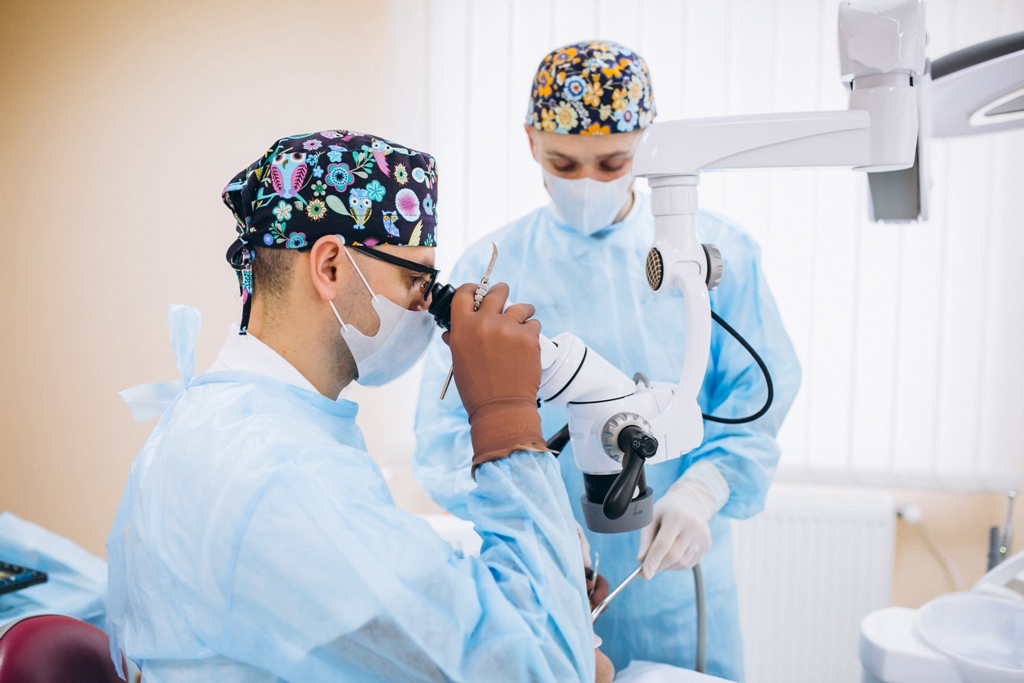
Cataracts are common in older adults and can make daily tasks more difficult. Age is the leading risk factor, but daily habits influence how quickly the lens changes. Cataracts form gradually as clear proteins in the lens break down and clump together, creating cloudy areas that block or scatter light. By protecting the eyes from […]
Read More… from Cataract Prevention Tips: How to Protect Your Vision Naturally
What Is a Corneal Abrasion? Signs, Causes, and How to Treat It

If it feels like sand is stuck in your eye and blinking makes it worse, you may have a corneal abrasion – a scratched cornea on the clear surface at the front of the eye. People sometimes call it a torn cornea, but most injuries are shallow scratches of the top layer, not a full-thickness […]
Read More… from What Is a Corneal Abrasion? Signs, Causes, and How to Treat It
Check Us Out On Social.


We are a proud partner of US Eye, a leading group of patient-centric, vertically integrated multi-specialty physician practices providing patients with care in ophthalmology, optometry, dermatology and cosmetic facial surgery.




